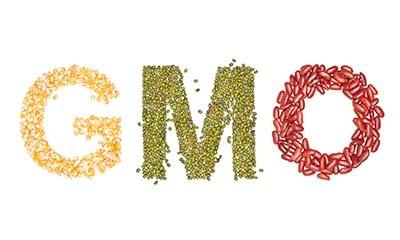
This summer Congress conquered an issue that has been haunting them for years: Coming together to advance a compromise on mandatory biotechnology food labeling and delivering it to the President for his signature. But the battle is far from over between the writing of the rules and expected litigation ahead.
Related: Obama signed GMO labeling bill

The battle over GMO labeling is far from over between the writing of the rules and expected litigation ahead. (Photo: darksite/Thinkstock)
The final law requires food companies identify products that contain GMO ingredients, using one of three options: on-package labels, a USDA-developed symbol or a QR (Quick Response) code consumers can scan with smart phones, providing a phone number or website with more information. Meat and dairy products, as well as foods that contain mostly meat, from animals that are fed GMO feed are exempt from the labeling requirement.
USDA will be the main rule promulgator and all eyes will be on the agency as they set out to write governing rules on the labeling requirements.
"In anticipation of action by Congress and signature by the President, a working group has already been established to begin the important work of crafting rules to properly and promptly implement the new law," a USDA spokesperson said shortly after the House vote.
After the Senate’s vote, some skepticism was raised by a technical assessment provided by the Food and Drug Administration (FDA). Key concern of the report was the bill’s narrow scope, particularly the bill’s definition of “bioengineering”, which would severely limit what products would and wouldn’t need to be labeled.
The FDA went on to say that the bill’s phrase on food “that contains genetic material’ will likely mean that many foods from GE sources will not be subject to the labeling requirements. For instance, oil made from GE soy would not have any genetic material in it, and so would not be labeled according to the definitions in this bill.
Supporters of the bill had focused on a USDA assessment which indicated the USDA's general counsel said regulatory officials will follow the spirit of the law when crafting rules and require labeling of all GMO ingredients that gain USDA approval as well as those developed with novel technologies.
“USDA, not FDA, will be the sole agency who will implement mandatory national labeling,” says Sen. Debbie Stabenow, D-Mich., FDA has denied petitions to label GMOs because there is no scientific reason to, which is why USDA would handle it under its marketing authority, she adds.
It seems very likely there will be a major battle over the course of the next few years as the Agricultural Marketing Service attempts to write draft and then finalize rules for GMO labeling options – including what will no doubt be big debates over definitions, exemptions and technologies.
Vermont’s attorney general has already said they’ll be very involved in making known how the rules should be written.
Related: What makes people queasy about GMO foods?
The Senate bill gives AMS two years to develop rules and regulations for the national labeling systems. Such a long time frame would provide an ample opening for opponents of labeling to attach an amendment, or policy “rider” to annual funding legislation that would block USDA from implementing the legislation. That scenario has played out numerous times in the past, including on country-of-origin labeling and on implementation of farm bill provisions with respect to the Packers and Stockyards Act (GIPSA rider).
In addition, regardless of how the rules turn out the issue is likely to be litigated in the courts; a process that could add more years to the clock before any labeling law goes fully into effect. FoodDemocracyNow! said they are mounting a legal challenge for what they see as infringement rights that guarantee equal protection for all since not everyone has a smartphone.
Lesson in cooperation
Maybe one of the most amazing feats of the bill’s passage was gaining the support of more than 1,000 organizations in favor of the final bill. After the Senate vote, Senate Agriculture Committee chairman Pat Roberts, R-Kan., called it the “most significant vote for agriculture” in the last 20 years.
Related: Senators announce compromise on GMO bill
“In the past, many of these organizations were at odds when crafting farm bills or other agriculture policy priorities,” Roberts said. Final passage “shows what can be accomplished for farmers when agriculture speaks with one voice.”
Leah Wilkinson, American Feed Industry Association (AFIA) vice president of legislative, regulatory and state affairs, says in the 15 years she has been involved in the agricultural policy arena, she’s never seen the industry come together on an issue like it did with this one. “It was a great exercise for the food industry, agriculture and feed industry to all ban together to stand and protect technology that we know and need to have,” she says.
“When we do work together, we can achieve goals,” Wilkinson concludes. “Hopefully, we can ride some of that momentum into other projects as well.”
About the Author(s)
You May Also Like






